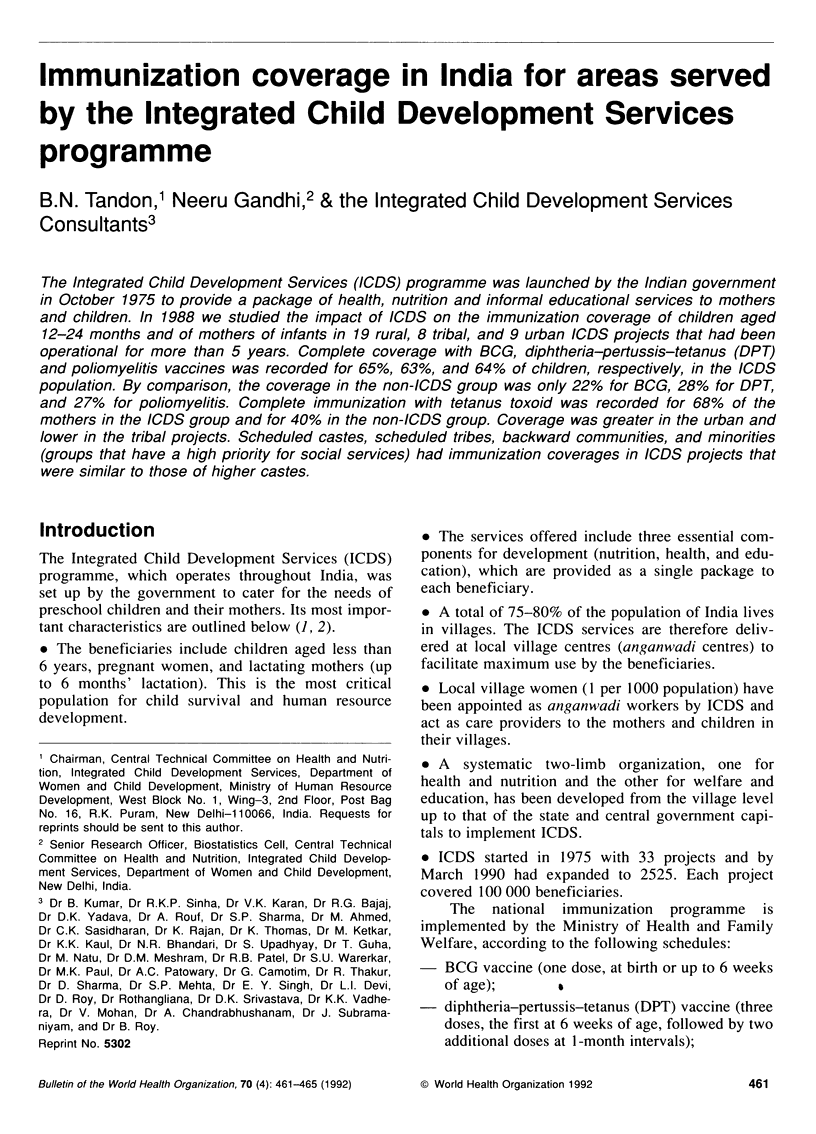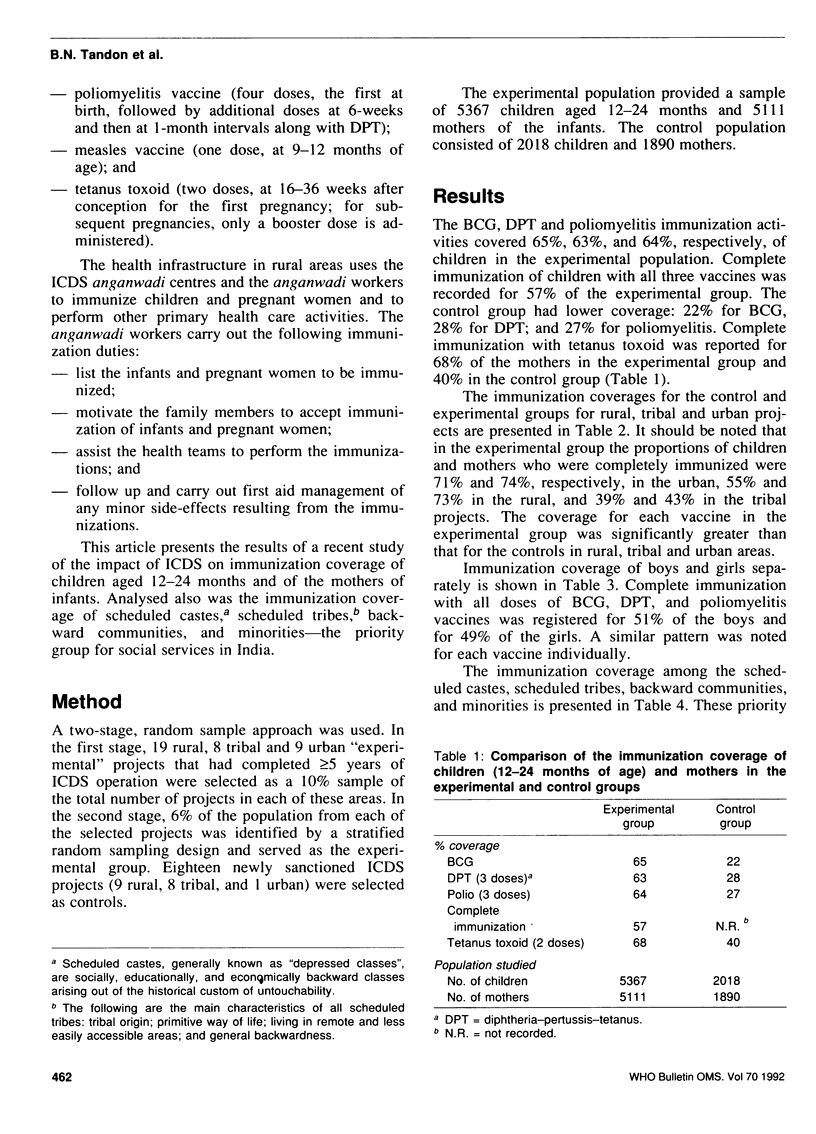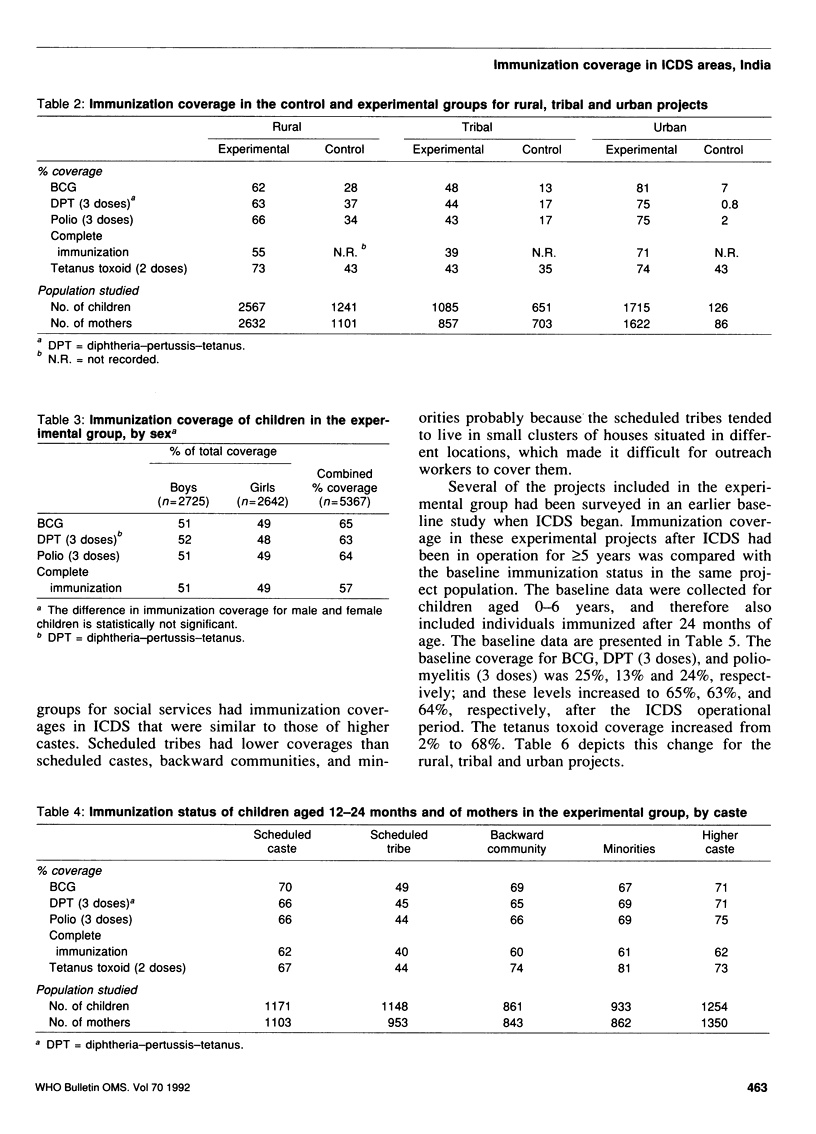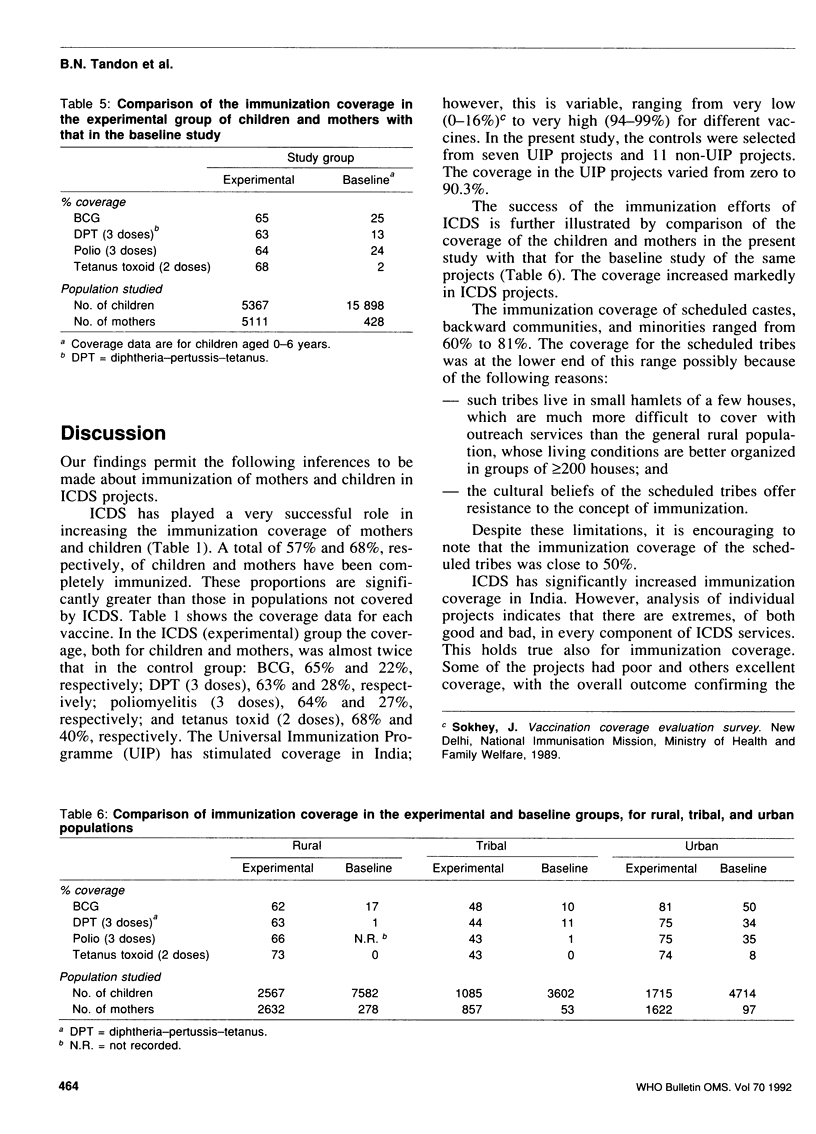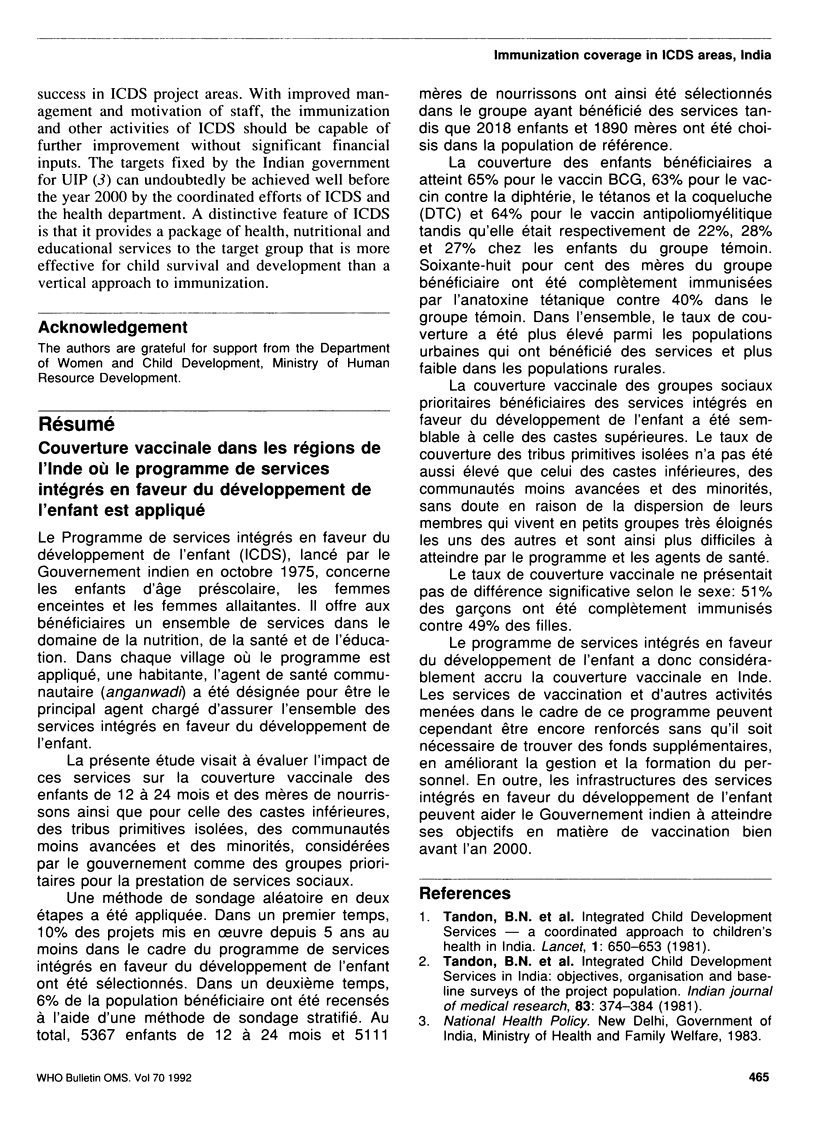Abstract
The Integrated Child Development Services (ICDS) programme was launched by the Indian government in October 1975 to provide a package of health, nutrition and informal educational services to mothers and children. In 1988 we studied the impact of ICDS on the immunization coverage of children aged 12-24 months and of mothers of infants in 19 rural, 8 tribal, and 9 urban ICDS projects that had been operational for more than 5 years. Complete coverage with BCG, diphtheria-pertussis-tetanus (DPT) and poliomyelitis vaccines was recorded for 65%, 63%, and 64% of children, respectively, in the ICDS population. By comparison, the coverage in the non-ICDS group was only 22% for BCG, 28% for DPT, and 27% for poliomyelitis. Complete immunization with tetanus toxoid was recorded for 68% of the mothers in the ICDS group and for 40% in the non-ICDS group. Coverage was greater in the urban and lower in the tribal projects. Scheduled castes, scheduled tribes, backward communities, and minorities (groups that have a high priority for social services) had immunization coverages in ICDS projects that were similar to those of higher castes.
Full text
PDF